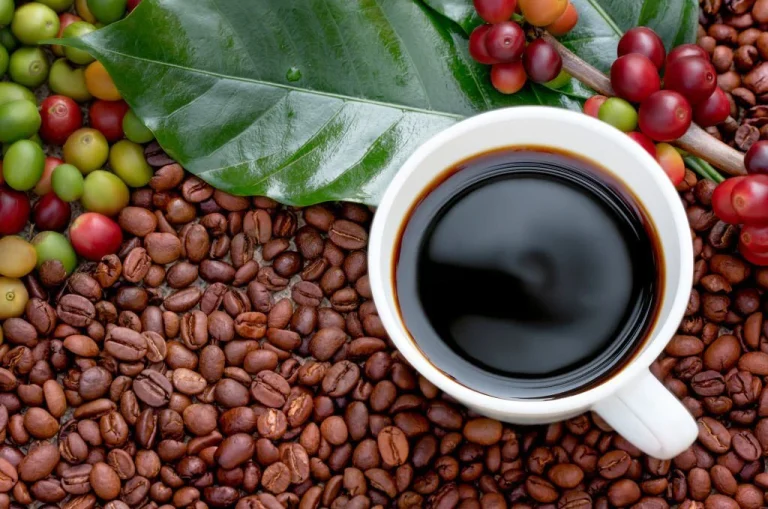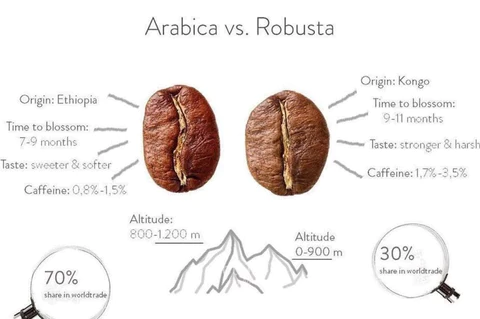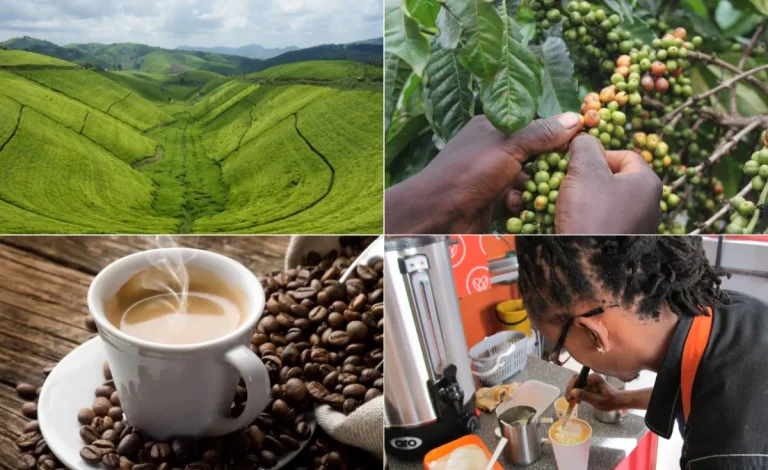Are you curious about what makes specialty coffee so special?
Specialty coffee offers a whole new world of flavor and quality, from unique sourcing methods to ethical considerations in production.
We will explore the distinguishing characteristics of specialty coffee beans, the different types of coffee beans available, and the essential brewing techniques to bring out the best in your cup.
Discover what sets specialty coffee apart from commercial options and learn how to identify real specialty coffee. So grab a cup of your favorite brew and immerse yourself in the world of specialty coffee!
Key Takeaways:
- Specialty coffee is not just any ordinary cup of joe – it’s carefully sourced, roasted, and brewed to ensure the highest quality and unique flavor profile.
- Ethical considerations, unique sourcing methods, and meticulous roasting and brewing techniques are what make specialty coffee truly special.
- Arabica, Robusta, Liberica, and Excelsa are the main types of specialty coffee beans, each with its own distinct characteristics that contribute to the overall unique flavor experience.
Introduction to Specialty Coffee
Introduction to Specialty Coffee delves into the world of meticulously crafted coffee with a focus on quality, taste, and ethical sourcing.
Specialty Coffee, unlike conventional mass-produced varieties, offers a unique experience with a diverse range of flavor profiles influenced by factors such as region, altitude, and processing methods. The emphasis on quality in Specialty Coffee often stems from the use of high-grade Arabica beans, renowned for their nuanced taste and distinct characteristics. Ethical practices like Direct Trade and Fair Trade play a crucial role in ensuring that farmers receive fair compensation for their hard work, promoting sustainability and transparency within the coffee industry.
What Makes Specialty Coffee Special?
Specialty Coffee stands out due to its unparalleled quality, diverse flavor profiles, and commitment to ethical sourcing practices.
This exceptional coffee variety goes through a rigorous quality control process, often by certified Q Graders who meticulously evaluate each batch to ensure only the best beans make the cut. The intricate process highlights the nuanced flavors present in each variety, allowing coffee enthusiasts to experience a wide range of tastes, from fruity and floral notes to deep, chocolatey undertones. Ethical considerations play a significant role in Specialty Coffee production, with a focus on sustainability, fair trade practices, and support for local farming communities.
Quality Aspects of Specialty Coffee
Delving into the Quality Aspects of Specialty Coffee unveils a world of meticulous production, flavor profiling, and rigorous quality control measures.
At the heart of maintaining exceptional quality in Specialty Coffee lies the role of highly skilled professionals known as Q Graders. These experts undergo rigorous training and testing to evaluate coffee beans based on an extensive set of criteria, including aroma, flavor, body, acidity, and balance. Their assessments provide valuable insights into the nuances of different coffee profiles, helping to identify the unique characteristics that define top-tier coffees. By meticulously inspecting every stage of the production process, from sourcing the finest beans to precise roasting techniques, Q Graders play a crucial role in ensuring that each cup of Specialty Coffee delivers a consistently exceptional experience.
Specialty Coffee Roasting and Brewing Techniques
Specialty Coffee Roasting and Brewing Techniques play a pivotal role in enhancing the unique flavor profiles and aromatic richness of premium coffee.
During the roasting process, the green coffee beans undergo a transformation where they expand, change color, and release the wonderful aromas that will define the final brew. Each roast level, from light to dark, brings out distinct flavors and aromas, with expert roasters carefully deciding the optimal roast profile for each batch. This attention to detail is crucial because it directly impacts the aftertaste and overall flavor balance of the coffee.
Regarding brewing methods, precision is key, as variables like water temperature, grind size, and extraction time greatly affect the taste. Through methods such as pour-over, French press, or espresso, baristas strive to extract the full potential of the beans, highlighting their unique cupping score and bringing out nuanced flavors.
The craftsmanship and dedication that go into roasting and brewing are what elevates Specialty Coffee beyond just a morning pick-me-up, turning each cup into a sensory experience that delights the palate and captivates the senses.
Unique Sourcing Methods of Specialty Coffee
Specialty Coffee embraces Unique Sourcing Methods such as Direct Trade and Fair Trade to establish direct relationships with farmers and ensure traceability to the coffee’s origin.
This commitment to sustainable practices goes beyond traditional trading methods, allowing coffee roasters to have a more profound impact on the lives of farmers.
In Direct Trade, coffee roasters work directly with farmers, cutting out middlemen and ensuring that farmers receive fair prices for their crops. This not only enhances the quality of the coffee but also strengthens the bond between producers and consumers.
On the other hand, Fair Trade certification guarantees ethical practices, fair wages, and community development. By prioritizing supply chain transparency and ethical sourcing, the Specialty Coffee industry sets a leading example for other sectors to follow.
Distinguishing Characteristics of Specialty Coffee Beans
Specialty Coffee Beans exhibit a diverse range of characteristics, from the nuanced flavors of Arabica to the bold profiles of Robusta and the unique attributes of Liberica and Excelsa beans.
Arabica beans are renowned for their delicate acidity levels and aromatic qualities, offering a wide spectrum of flavors ranging from fruity and floral to nutty and chocolaty. On the other hand, Robusta beans are distinguished by their strong, bitter taste, imparting a rich and full-bodied flavor with a high caffeine content. Liberica beans stand out with their distinct woody and smoky notes, while Excelsa beans bring a tart and fruity twist, contributing to a complex and vibrant coffee experience.
Ethical Considerations in Specialty Coffee Production
Ethical Considerations are paramount in Specialty Coffee Production, emphasizing sustainability, fair practices, and social responsibility within the industry.
Regarding ethical considerations in specialty coffee, it’s essential to delve into the various aspects that contribute to a sustainable and socially responsible industry. One of the key components is ethical sourcing, where companies ensure that the coffee they use is produced in a manner that respects both the environment and the people involved in its cultivation. This not only supports the local communities where the coffee is grown but also promotes transparency and accountability throughout the supply chain.
Along with ethical sourcing, another crucial area is environmental sustainability. The coffee industry is highly dependent on natural resources, so implementing practices that minimize wastage, reduce carbon footprint, and protect biodiversity is vital for long-term growth. By prioritizing sustainable practices, the industry can mitigate its environmental impact and contribute to a healthier planet for future generations.
Exploring Different Types of Coffee Beans
Exploring Different Types of Coffee Beans provides insights into the diverse characteristics and flavor profiles of Arabica, Robusta, Liberica, and Excelsa beans.
Arabica beans, known for their delicate flavors and pleasant acidity, are the most popular coffee beans worldwide. Originating from Ethiopia, they offer fruity and floral notes and are often used in specialty coffee blends. On the other hand, Robusta beans, characterized by a strong, bitter taste and higher caffeine content, are commonly found in espresso blends for a robust kick. Liberica beans, with their unique smoky, woody flavor, are quite rare and hail from West Africa. Excelsa beans, originating from Southeast Asia, offer a tart and fruity flavor profile that adds complexity to certain coffee brews.
Arabica Beans
Arabica Beans are renowned for their smooth taste, complex flavors, and origins from regions near the Tropic of Cancer and the Tropic of Capricorn.
These beans are highly prized for their nuanced flavor profiles, which can range from floral and fruity to nutty and chocolatey, offering a delightful sensory journey for coffee enthusiasts. Arabica Coffee is predominantly cultivated in countries such as Ethiopia, Colombia, and Brazil, where the ideal growing conditions near the equator allow these beans to thrive.
The unique microclimates of these regions, known as terroir, play a crucial role in shaping the taste of Arabica Coffee. Factors such as altitude, soil composition, and rainfall patterns all influence the beans’ flavor profiles, resulting in a diverse range of tastes that reflect the natural environment where they are grown.
Robusta Beans
Robusta Beans are known for their bold flavors, higher caffeine content, and resilience against coffee rust, making them popular for blending and espresso production.
These beans are often described as having a strong, earthy flavor that adds depth to coffee blends. Due to their higher caffeine levels compared to Arabica beans, Robusta is favored by those seeking a more robust and intense coffee experience.
One of the key advantages of Robusta beans is their natural resistance to pests like coffee rust, ensuring a more stable and reliable crop for farmers. This resilience makes them a valuable resource in regions where disease outbreaks are common.
In the coffee industry, Robusta plays a crucial role in espresso blends, providing a rich crema and a distinctive kick that complements the smoother profile of Arabica beans. This blend of flavors results in a well-balanced and flavorful espresso that is enjoyed by coffee enthusiasts worldwide.
Cultivating Robusta beans, however, comes with its own set of challenges. These plants require specific environmental conditions, such as low altitudes and warm temperatures, making them more limited in terms of suitable growing regions compared to Arabica beans.
Despite the cultivation challenges, Robusta beans are a significant contributor to the coffee industry, offering a unique flavor profile and high caffeine content that appeals to a different segment of coffee drinkers. Their bold characteristics and versatility in blending make them an critical component in the world of coffee production.
Liberica and Excelsa Beans
Liberica and Excelsa Beans offer unique flavor profiles and aromatic experiences, with Liberica known for its distinctively fruity notes and Excelsa for its intriguing aroma.
While Arabica and Robusta beans dominate the coffee industry, Liberica and Excelsa beans are hidden gems cherished by those seeking something different.
Liberica beans, originating from West Africa and Southeast Asia, are characterized by their large size and a flavor profile that often includes hints of nutmeg and dark chocolate. On the other hand, Excelsa beans, primarily grown in Southeast Asia, possess a tart and fruity flavor with a hint of smokiness, making them stand out among coffee connoisseurs.
Understanding the Specialty Coffee Supply Chain
Understanding the Specialty Coffee Supply Chain involves tracing the journey of coffee from farmers to roasters, ensuring ethical practices, quality control, and sustainability at every step.
At the heart of this intricate network are the dedicated farmers who cultivate the coffee cherries with precision and care. These farmers play a crucial role in shaping the flavors and quality of the beans, often utilizing sustainable farming practices to protect both the environment and the workers. From the farmers, the coffee beans move on to the skilled roasters who bring out the unique flavors and aromas through precise roasting techniques.
Distributors then take on the responsibility of ensuring that the coffee reaches its destination through fair trade practices and transparent transactions. Challenges such as volatile market prices and changing weather patterns can impact the supply chain, making it crucial for all parties to maintain open communication and adaptability.
Differentiating Specialty Coffee from Commercial Coffee
Differentiating Specialty Coffee from Commercial Coffee lies in the emphasis on superior quality, unique flavor profiles, and meticulous production processes that define the Specialty Coffee experience.
Unlike mass-produced commercial blends, Specialty Coffee undergoes intricate cultivation and processing methods to maintain its exceptional quality and flavors. Each step, from sourcing the beans to roasting them, is carefully monitored to ensure consistency and excellence in every cup. Specialty Coffee offers a diverse range of flavors, influenced by factors such as region, altitude, and processing techniques, providing coffee enthusiasts with a sensory journey like no other.
Criteria for Identifying Real Specialty Coffee
The Criteria for Identifying Real Specialty Coffee involve stringent quality control measures, transparent sourcing practices, distinct flavor profiles, and a focus on the coffee’s origin and terroir.
One of the primary quality criteria used in the evaluation of Specialty Coffee is the expertise of Q Graders, who are certified professionals trained to assess coffee beans based on stringent standards. These experts evaluate various aspects such as the bean’s size, shape, color, and more to determine its quality.
The processing methods play a crucial role in achieving the distinct flavor profiles characteristic of Specialty Coffee. Whether it’s the natural, washed, or honey process, each method imparts unique characteristics to the beans, influencing the final taste.
The aroma of Specialty Coffee is another essential factor in evaluating its authenticity. Aroma is often considered the first impression of a coffee, and it can provide valuable insights into its flavor profile before even taking the first sip.
Comparing Gourmet Coffee with Specialty Coffee
Comparing Gourmet Coffee with Specialty Coffee reveals distinctions in quality, flavor complexity, and the meticulous production processes that set each category apart in the coffee industry.
While both Gourmet Coffee and Specialty Coffee are considered high-quality in their own right, Gourmet Coffee often focuses on the appearance and presentation aspects of the beans, ensuring uniformity in size, shape, and color for an aesthetically pleasing brew. On the other hand, Specialty Coffee emphasizes the unique flavors derived from specific regions, microclimates, and processing methods, leading to a more diverse and nuanced taste profile.
Consumers who prefer Gourmet Coffee tend to value consistent flavors and a luxurious experience, while those opting for Specialty Coffee are more inclined towards exploring the subtleties of different beans and supporting sustainable practices in the coffee industry. Market trends suggest a growing interest in Specialty Coffee due to its artisanal appeal and focus on transparency from bean to cup, even if it comes at a higher price point.
What Sets Apart a Specialty Coffee Brand
What Sets Apart a Specialty Coffee Brand is a blend of uncompromising quality, ethical sourcing practices, unique aroma profiles, and a commitment to delivering exceptional coffee experiences.
Specialty coffee brands meticulously craft their identity through a combination of stringent quality assurance measures and a deep-rooted commitment to sourcing beans from sustainable and transparent supply chains. By focusing on ensuring a premium product, these brands aim to not only offer a tantalizing aroma but also foster goodwill within the coffee community. Emphasizing the origin stories of the coffee beans, they establish a narrative that speaks to the values they uphold, resonating with consumers who value transparency and authenticity. This engenders trust and loyalty, two key pillars of success in the competitive Specialty Coffee market.
Essentials for Brewing Specialty Coffee at Home
Discover the Essentials for Brewing Specialty Coffee at Home, including tips from expert baristas, flavor preservation techniques, and quality control measures to elevate your coffee brewing experience.
When diving into the world of specialty coffee, understanding the nuances of grind size becomes paramount. Optimal grind size varies depending on the brewing method; a finer grind for espresso and a coarser grind for French press. Equally important is the water temperature—between 195-205°F—to ensure proper extraction.
Ethics and sustainability play a crucial role; consider purchasing beans from ethically sourced suppliers. Experiment with different brewing methods such as pour-over, Aeropress, or cold brew to discover your favorite flavors. The journey of brewing specialty coffee at home is a delightful blend of science and art, where precision and creativity intertwine to create the perfect cup.
Frequently Asked Questions
What is specialty coffee and how is it different from regular coffee?
Specialty coffee refers to coffee beans that have been graded 80 or above on a 100-point scale by certified professionals. This grading system takes into account factors such as the beans’ origin, variety, processing, and overall quality. Regular coffee, on the other hand, does not go through this rigorous grading process and may contain a mix of beans from different sources.
What makes specialty coffee more expensive than regular coffee?
Since specialty coffee beans are carefully selected and graded, they tend to have a higher price point than regular coffee. Additionally, specialty coffee is often sourced from small, independent farms that prioritize quality over quantity, which can also contribute to the higher cost.
What sets specialty coffee apart from the rest?
Specialty coffee beans are known for their unique flavors and characteristics. This is because specialty coffee is often grown in ideal conditions, with a focus on sustainability and quality. The beans are also carefully roasted to bring out their distinct flavors and aromas.
Why is it important to support specialty coffee farmers?
By purchasing specialty coffee, you are not only enjoying a delicious cup of coffee, but you are also supporting small-scale farmers who put a lot of effort and care into producing high-quality beans. This can have a positive impact on the local economy and help promote sustainable farming practices.
Can specialty coffee be found in chain coffee shops?
While some chain coffee shops may offer specialty coffee options, the majority of specialty coffee is sold by independent coffee shops, roasters, or online retailers. These smaller businesses often have a closer relationship with the farmers and can provide a wider selection of specialty coffee beans.
How can I tell if I’m drinking specialty coffee?
If you’re not sure if your coffee is specialty or regular, you can look for the Specialty Coffee Association’s (SCA) Certified Arabica Seal. This seal ensures that the coffee met the SCA’s standards for specialty grade, including taste and quality. You can also ask your barista or coffee supplier about the origin and grading of the beans to determine if it is specialty coffee.






